Bup-ing Up Residency: A Dose of Change for OUD Care [Education and training]
Annals of Family Medicine
NOVEMBER 20, 2024
Context With buprenorphine prescribing restrictions lifted, primary care physicians (PCP) are frequently the first contact for patients who have opioid use disorder (OUD) and require treatment with buprenorphine.

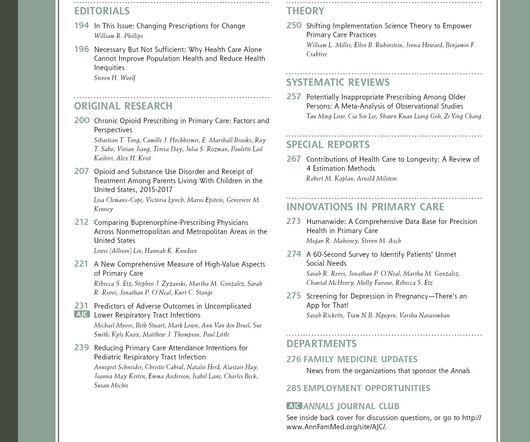
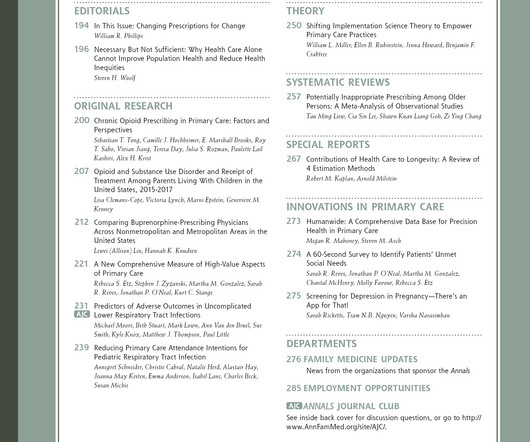
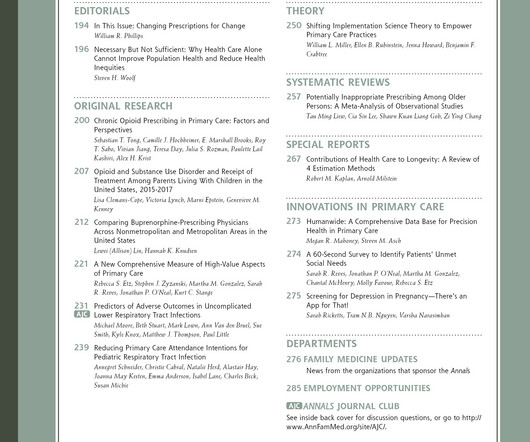
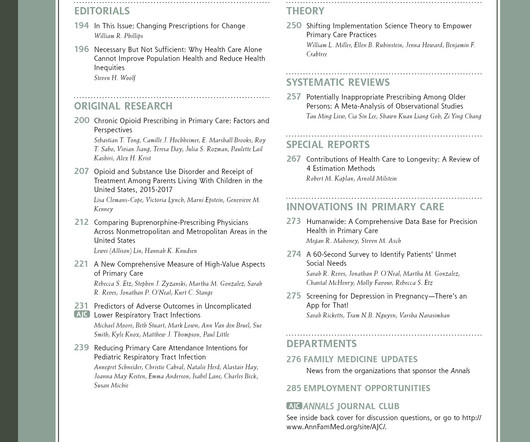
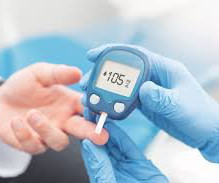









Let's personalize your content